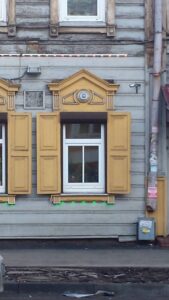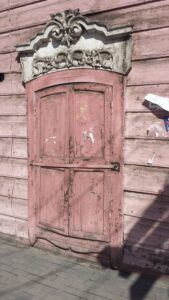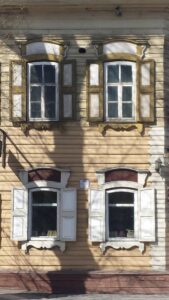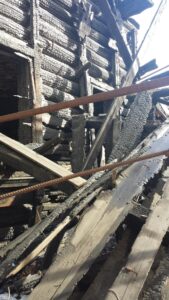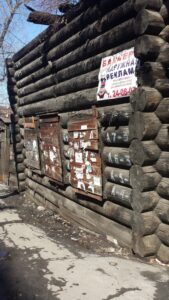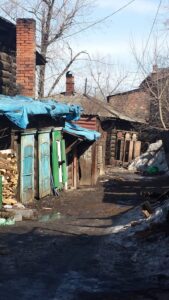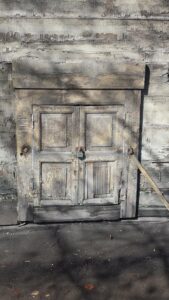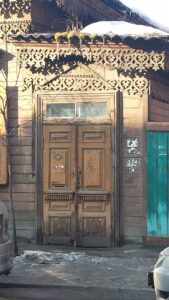My first visit to Irkutsk happened over twenty years ago, when I was looking to expand study abroad options for SRAS beyond Moscow. I recall that I was fascinated by these old wooden houses, right in the center of the city, where they seemed at risk for rapid demolition to make way for new offices and retail space. Anytime I thought about Irkutsk I had this fear of one day returning to find all those wonderful houses gone.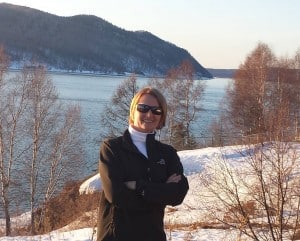
It was with a tremendous sigh of relief that I found these buildings still standing on my most recent visit. They speak to Russia’s history and culture. They have a simple beauty. It is easy to imagine that inside is a warm and comfortable place from which to escape the Siberian winter, to sit near a massive, traditional Russian stove for hours over tea, local fish, wild mushrooms and berries. And there is a certain sense that the wood has some life in it and that if it could speak, it would have many stories to tell about what transpired both within and outside those walls.
The fate of these buildings is a challenge for the city. Many are owned by private individuals who cannot afford to do the proper restoration. Many sit on prime, central real estate and there are those who would tear them down to build anew, which is likely much less expensive than proper restoration. Thankfully, it seems this is not allowed, that these buildings are protected. Sadly, they are wood and old and there are fires. It is likely that not all are accidental. Some may be a way to get around preservation laws. You can see more pictures and read more (in Russian) here and here.Alternatively, it could stay residential. This would be a bit of a paradoxical market though as by location it should be relatively expensive, and those who might afford such a location might either prefer to live outside the city with more land or bigger homes.
All of this is intimately connected with the economic situation and how Irkutsk itself decides to develop. On one hand, the coffers are not overflowing with oil money and it’s perhaps unlikely that investment will be poured into this. Perhaps the houses will be simply left alone for another few years. On the other hand, there is finally real pressure to diversify, and perhaps tourism will benefit from this and drive some decisions.
The future of these buildings is an interesting question from a planning viewpoint. The tourist (perhaps romantic) in me sees all this potential for a pretty area of the downtown, with these old houses filled with B&Bs, cozy cafes, artist shops, and bookstores. I have to admit that I am not enamored with how this was done in the 130th Kvartal.
There, some buildings were renovated and other new buildings were built roughly in the style of the old buildings. The surrounding area and walkways are decidedly modern. It reminds me a bit too much of a bar/restaurant entertainment zone. But still, as I understand, this was the renovation of a really dilapidated area and the result does serve a purpose, i.e., it is a local destination for dining and gathering in the evening. I would like to see it done a little differently in the central area, maintaining more character. You can see more of the kvartal here and here.
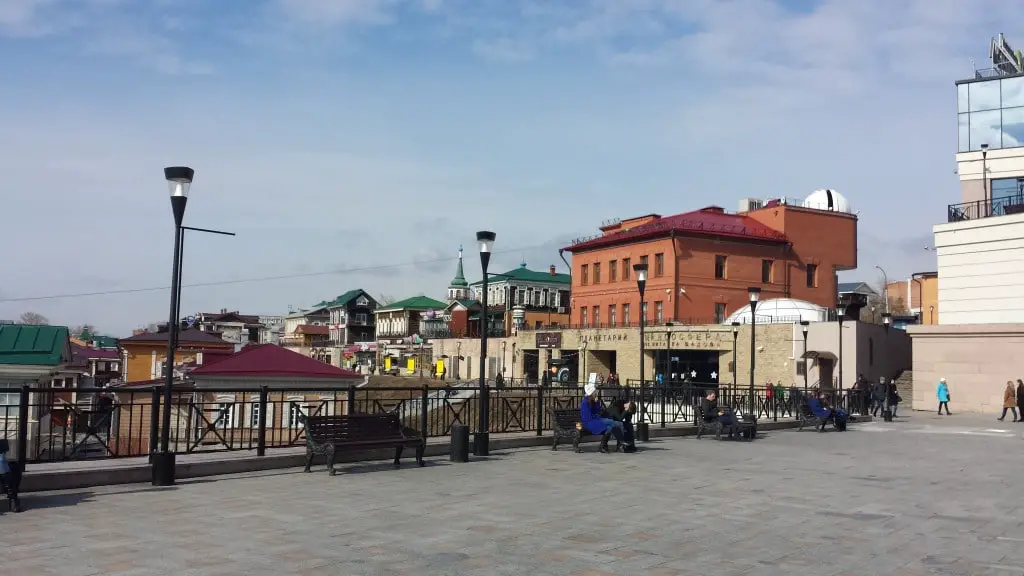
Irkutsk is in a peculiar position of competing with Lake Baikal (an hour away). Most tourists spend more time on the lake than in the city, but I believe it would not take so much effort to hold tourists for a day or two longer in Irkutsk. The city has a very interesting history, some of which plays right to the tourist – such as the romantic story of the Decembrists. Irkutsk has assets to work with that many cities around the world can only dream of – Lake Baikal, the Trans-Siberian Railway, an interesting history and museum base, a linguistic university (to support the multi-lingual needs of an international tourist destination), and most importantly, rural Russian hospitality in a urban setting.
I have two points with all this. My point in this all is to first of all share with you some of these images – Windows on Siberia, I like to call it. I had two glorious afternoons of late winter/early spring weather in which to just walk around and take pictures, one of my favorite things to do. Sometimes I am a bit more focused on people (where possible) but this time I was determined to capture as many images as possible of these old houses. Perhaps this is my lingering fear of them disappearing.
My other point is that I have a renewed enthusiasm and determination to encourage students to study Russian in this city. It is truly immersive from both the language and culture aspects. The people are still curious about foreigners, especially Westerners (they have far more visitors/students from Asia) and in a very positive way. You could easily ask someone a question on the street and find yourself invited to their home for tea. These things happen in Irkutsk and it creates incomparable opportunities for learning and memorable “people” experiences.
You May Also Like
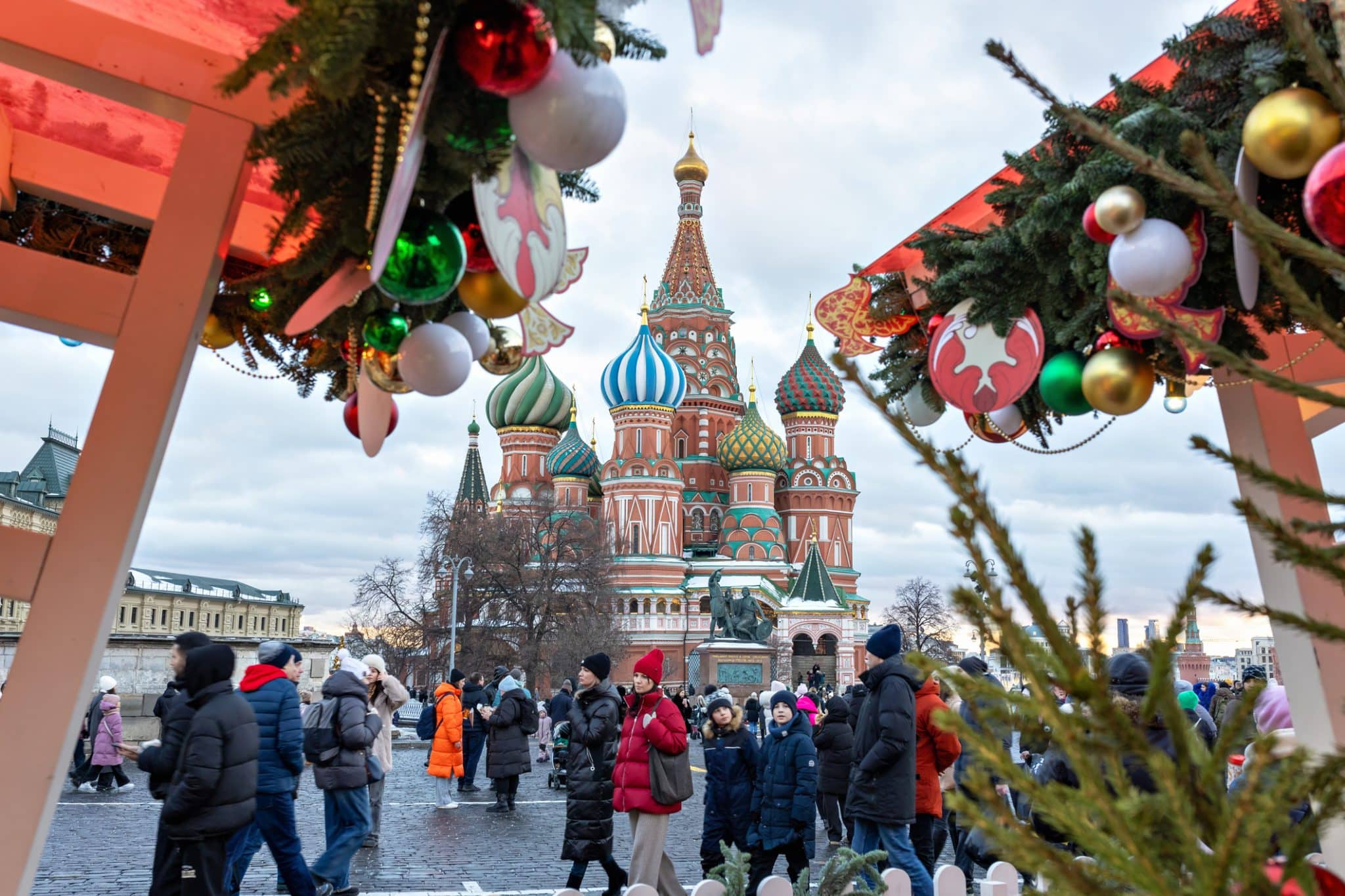
Russian Holidays 2026: A Complete Guide
Russians have typically gotten nearly three weeks off a year just for holidays. This has changed in recent years and especially since the start of the war in Ukraine, as Russia has pushed for greater effeciency in its economy. While the long New Year holidays remain, most others are now more modest, with often with […]

A History of Russian Holiday Cards (Pre-Revolution)
The custom of sending greeting cards can be traced back to the ancient Chinese, who exchanged messages of good will to celebrate the New Year, and to the early Egyptians, who conveyed their greetings on papyrus scrolls. It is believed that first Christmas card was created by an English artist named “Dobson” in 1794. The […]
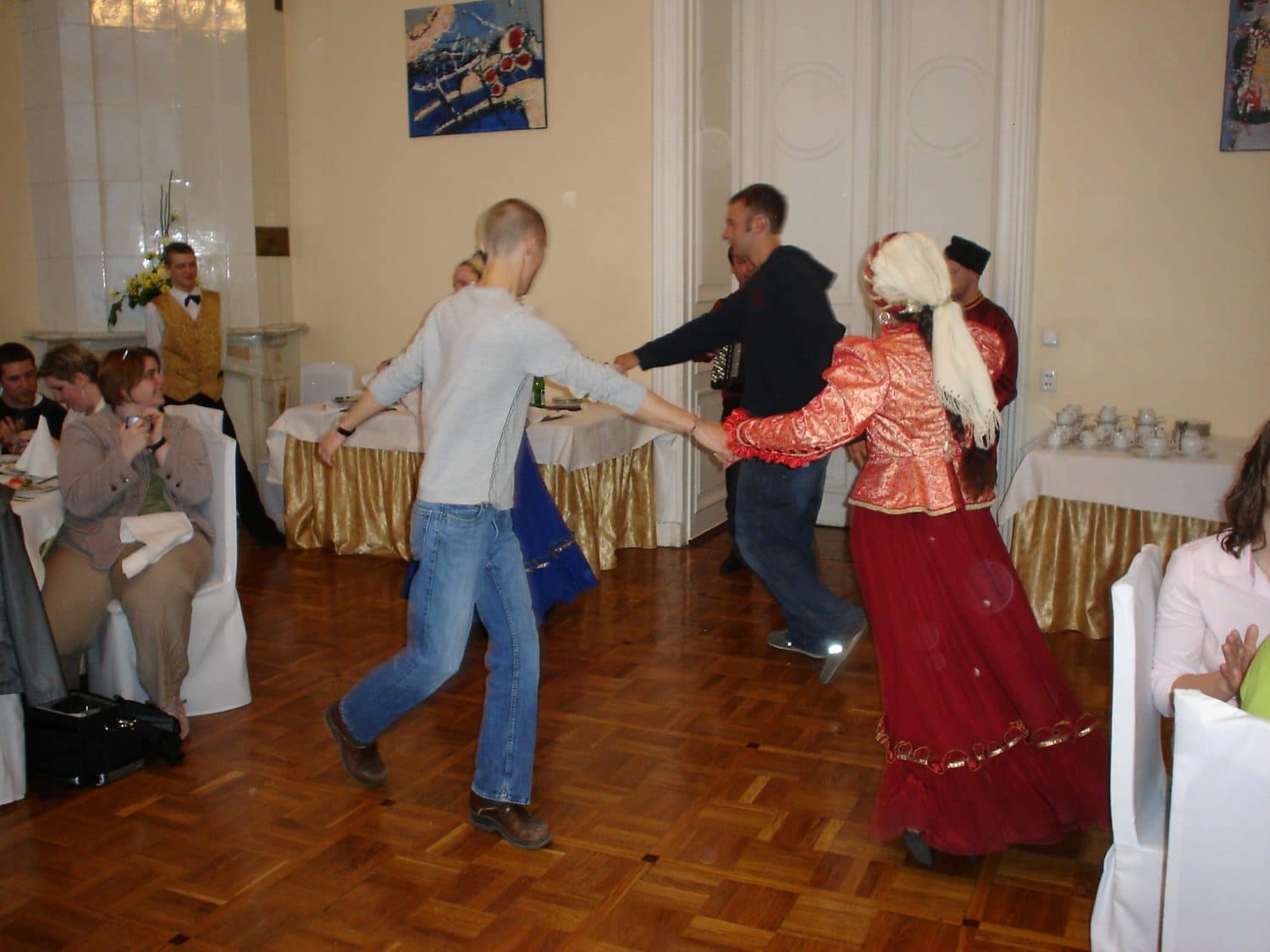
Essay: My Assessment of Russian Culture
The following was written as a mid-term essay for an SRAS program in St. Petersburg. Students were encouraged to draw upon not only the program texts, but also on the impressions and experiences gained of Russia and Russians while on-the-ground in St. Petersburg. A select few of these essays have been chosen to be published […]

Очки и окулисти – Glasses and Eye Doctors
An eye doctor is called an “окулист” or “офтальмолог” in Russian, or, sometimes and informally, a “глазной врач.” While the word оптика (ophthalmologic optics) is a common name for an eyeglass store in Russia, there is no exact Russian equivalent to the English word “optometrist,” which can be loosely translated as специалист по подбору очков. […]
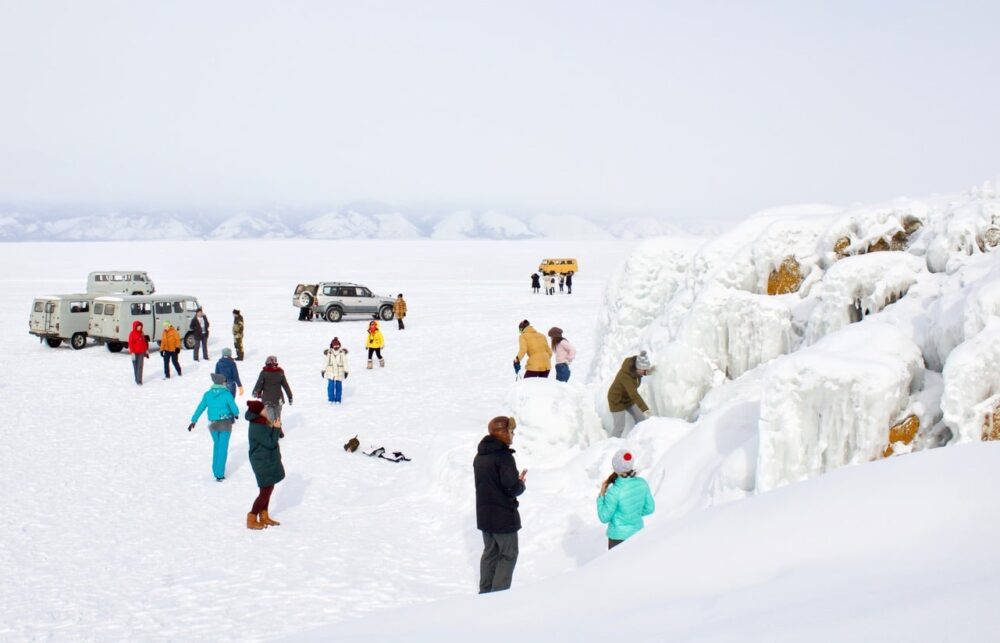
Preparing for the Cold: Winter Wear as a Cultural Phenomenon in the Russian Language
Russians, and the many other cultures that live across the Eurasian landmass (such as the Evenk and Sakha), have culturally adapted to the continent’s famously cold winters in order to survive. This has affected traditional clothing and housing, but also cultural attitudes toward the weather. These attitudes are, in turn, often reflected in language. This […]


